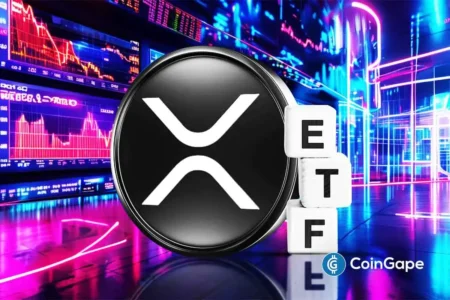NYSE Arca’s Historic Shift: Grayscale Ethereum ETFs Move to Generic Listing Standards
The U.S. Securities and Exchange Commission (SEC) has paved the way for a pivotal change in the trading of two significant Ethereum products. On September 19, 2025, NYSE Arca took a significant step by filing to transition the Grayscale Ethereum Trust ETF and the Grayscale Ethereum Mini Trust ETF from Rule 8.201-E (Non-Generic) to Rule 8.201-E (Generic). This strategic move positions both ETFs under new generic listing standards, aligning them with the SEC’s recent regulatory updates aimed at streamlining the approval process for cryptocurrency products.
Streamlined Trading Under New Regulations
The SEC has confirmed that the rule change is effective immediately, allowing both ETFs to trade under generic listing standards. Previously, each fund required separate SEC approvals for listing, which created complications that could hinder trading efficiency. The decision to shift the Grayscale ETFs to a generic framework is a game-changer, as it removes the necessity for case-by-case authorization, ensuring both funds can trade without needless delays in regulatory approval.
Why the Change Matters
NYSE Arca’s pursuit of this shift is particularly noteworthy even though the Grayscale Ethereum Trust ETF and Mini Trust ETF already had SEC approval orders. This proactive approach comes at a time when the SEC has promised quicker approval timelines for a wider array of cryptocurrency ETFs, including those related to assets like XRP, SHIB, and HBAR. By aligning with the SEC’s new guidelines, NYSE Arca is positioning itself—and by extension, Grayscale’s ETFs—at the forefront of this evolving landscape.
Historical Context of the Grayscale ETFs
To truly understand the significance of this update, it is essential to consider the history of the Grayscale Ethereum Trust ETF and the Mini Trust ETF. The Trust ETF received its initial approval in May 2024, followed by the approval of the Mini Trust ETF in July 2024. Both approvals came with specific conditions dictated by the SEC, underscoring the regulatory scrutiny faced by crypto-based products. Transitioning these funds to the new generic rule allows them to operate under a more straightforward, clearly defined framework, removing the encumbrance of repeat filings.
Aligning with Broader Regulatory Trends
This change reflects a broader trend within the SEC to embrace more flexible regulatory frameworks for cryptocurrency products, specifically for commodity-based trust shares. The generic listing standards are designed to expedite the listing process for qualifying products, streamlining what has traditionally been a cumbersome and slow process. This shift signals a growing recognition from the SEC that the cryptocurrency market requires adaptable and efficient regulatory structures to foster innovation.
Conclusion: A More Robust Future for Cryptocurrency ETFs
With the successful transition of the Grayscale Ethereum ETFs to a generic listing standard, NYSE Arca and Grayscale have set a precedent for future cryptocurrency products. As regulatory frameworks continue to evolve, this change is not only beneficial for traders and investors but also marks a significant step toward broader acceptance and integration of cryptocurrency in the financial markets. The move ensures that Grayscale’s Ethereum ETFs will maintain operational fluency, adapting to the rapidly changing landscape of digital assets. As more entities embrace the SEC’s streamlined approach, the future of cryptocurrency ETFs looks increasingly promising.

















